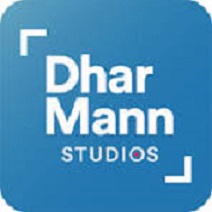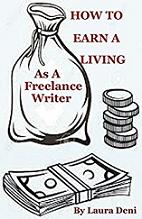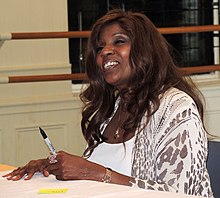 Broadway To Vegas
Broadway To Vegas

REVIEWS INTERVIEWS COMMENTARY NEWS
 |  |
CO-STARRING WITH AI - - FAKE IT UNTIL YOU MAKE IT
- - CURSE OF THE STARVING CLASS - -
MENTAL HEALTH OF REALTIY TV PARTICIPANTS - -
GLORIA GAYNOR HONORED - - SEEING RED - -
MUSEUM OF BBQ
- - NEW ORLEANS SONGBOOK: JAZZ AT LINCOLN CENTER - - DONATE . . . Scroll Down
Copyright: February 16, 2025
By: Laura Deni
CLICK HERE FOR COMMENT SECTION
CO-STARRING WITH AI
"The Power of Positivity: Building the World’s Largest Digital Scripted Studio – Dhar Mann Studios" featuring Dhar Mann, the founder of Dhar Mann Studios (DMS) and DMS CEO Sean Atkins will headline at NAB.
 |
AI Takes Center Stage at the upcoming Las Vegas National Association of Broadcasters (NAB) Show where attendees will discover AI innovation, trends and challenges across the industry.
Artificial intelligence (AI) is a driving force at the 2025 NAB Show, shaping the future of content creation, distribution, monetization and audience engagement. PropelME, NAB Show's dedicated startup hub, is featuring companies leveraging AI to transform the broadcast, media and entertainment industry. Through a strategic partnership with FBRC.ai, PropelME will showcase the next generation of AI-powered technologies that are redefining storytelling and production.
This show floor destination will also feature the new Startup Stage, where industry leaders and startup founders discuss advancing technological innovations across two key themes. The Hybrid Production with AI track examines how AI is streamlining workflows from on-set production to post-production. The Evolving Consumer Experiences track focuses on new AI-driven methods for distributing, personalizing and enhancing storytelling.
Brands showcasing at PropelME include Advanced Image Robotics, Anantadi, AudioShake, BeeYou.tv, bit part, EON Media Corp, Fastah Inc, Flomenco, Frammer AI, Lightcraft Technology, Logituit, MID49 and Voyage Audio. Learn more to join PropelME.
Advancing AI: Cutting-Edge Technologies and Emerging Trends at NAB Show.
AI is playing an increasingly vital role in content creation, transforming everything from storytelling and audience engagement to workflow optimization and revenue generation. While these advancements open new opportunities, they also raise important discussions around responsible implementation, ethical considerations and the long-term impact on media professionals and audiences. NAB Show provides unparalleled access to the latest AI-driven tools, insights and discussions with highlights that include:
Safeguarding IP in the Era of AI: From Deepfakes to Digital Deception. A look at how creators, studios and talent can protect their IP from misinformation while leveraging AI, featuring Dan Neely, CEO of Vermillio and one of TIME's 100 Most Influential People in AI.
DeepSeek and the New Reality: Progress or Pandora's Box. A dive into the commoditization of AI models and the urgent need for media companies to prioritize competitive differentiation at the application layer, ethics and governance, featuring insights from industry leaders like Andy Beach, former Microsoft CTO.
AI Innovation Pavilion. A central hub on the show floor displaying the latest advancements in AI tech, fostering connections and collaboration among industry leaders.
Post|Production World's Expanded AI Track. A deeper dive into practical AI applications in video editing, motion graphics and animation.
Specialized AI Workshops Covering AI-driven production workflows, generative content creation and AI-powered analytics.
AI is transforming media and entertainment, unlocking new ways to tell stories, engage audiences and streamline production,ť said Karen Chupka, executive vice president and managing director, NAB Global Connections and Events. At NAB Show, we're bringing together emerging tech and visionary creators to explore AI's ability to enhance storytelling.
New generative AI use cases are projected to unlock $380 billion to $690 billion in economic impact according to McKinsey & Company. With the global AI media and entertainment market set to exceed $104.4 billion by 2030 according to Straits Research, NAB Show is an unmissable opportunity for media professionals looking to stay ahead of the curve.
AI is revolutionizing media asset management by significantly reducing the time needed to source and index video content, asserts Frederic Petitpont co-founder and CTO of Moments Lab.
This advancement enables new programming strategies, such as creating documentaries from archival footage, and introduces capabilities like AI voice cloning and custom video insights, wrote Petitpont He continued: One large media group is using AI to index 45 years of video archives, and pinpoint historic footage that can be reused as supplemental content to today’s news stories, to craft new documentaries and TV specials and to put up for sale and licensing.
Universities across the national are touting AI.
Ohio University School of Media Arts and Studies Director and music industry Associate Professor Josh Antonuccio believes this is only the beginning of AI's influence on music. In an article published by the university he stated: "It is a tool set that is far beyond the scope of anything we have seen in human innovation to this point," Antonuccio said. "The Beatles story is indicative of change for a lot of things in music, and that change will be across the board in creative industries," he said referring to: "When The Beatles released “Now And Then” in November 2023 it marked many firsts and lasts. The artificial intelligence-assisted single was the band's first and only song of the 21st century, and their last song ever.
The last Beatles song won a best rock performance Grammy on February 2, 2025, 55 years after the band split up in 1970. The single also competed for Record of the Year, a category they never won and did not end up winning on the night. Instead, it went to Kendrick Lamar and Not Like Us.
ť
Now And Thenť notably used restorative artificial intelligence (AI) techniques to resurrect a demo recording by the late John Lennon. The song also made history as the first AI-assisted song to ever win a Grammy, according to Loudwire. Now that a song created using AI has been officially recognized by the Recording Academy if it wasn't already AI's role in music has officially been cemented into the mainstream.
The Minneapolis College of Art and Design (MCAD) which :acknowledges it is located on traditional, ancestral, and contemporary lands of Indigenous people. This is the ancestral homeland of the Dakota and Ojibwe people, who were forcibly exiled from the land because of aggressive and persistent settler colonialism. We recognize that this place has a complex and layered history. As a community dedicated to creativity, MCAD is committed to ongoing efforts to support and advocate for American Indian Nations and peoples."
The integration of artificial intelligence (AI) into art and music is reshaping creative landscapes. In a recent MPR News episode, experts, including Tim Brunelle, an MCAD adjunct professor, discussed how AI tools are revolutionizing artistic expression.
AI is increasingly involved in generating visual art and composing music, sparking debates about its impact on human creativity. While some see AI as a tool for innovation, others question its role in the creative process. Despite uncertainties, many artists and musicians embrace AI as a collaborative partner. They use AI algorithms to create unique visuals and compose music with AI-generated melodies. This intersection of AI and art presents a dynamic exploration of technology's role in creativity.
As we navigate this evolving landscape, one thing is clear: the fusion of AI and artistic expression continues to shape the future of creativity in profound and unpredictable ways.
A Stanford University's Arts and Humanities department emphasized AI Brings New Potential to the Art of Theater. Stanford's Michael Rau combines human creativity and artificial intelligence to add new dimensions to storytelling and stagecraft he stated to the University's Beth Jenkins.
For instance, on stage, actors depict a sword-fight scene while an AI mimics their movements.
Stanfords Michael Rau is on a mission to reimagine theater for the digital age. As an assistant professor of directing and devising in the Theater and Performance Studies (TAPS) program in the School of Humanities and Sciences, Rau has long explored how theater can mirror the complexities of modern life. Now, with a seed grant from Stanford's Institute for Human-Centered Artificial Intelligence (HAI), taking that mission to a new frontier: integrating artificial intelligence into a live performance.
Rau's work encompasses three approaches:
Image generation: An AI-powered image generator receives a video feed from a live performance and interprets a prompt to alter the image of the actors. The AI-adjusted feed is then projected onto the stage simultaneous to the human production to create an image feed that might be seen as a dream sequence, an alternative story, or a different dimension.
Large language model (LLM) live-scripts: Suggestions from the audience are plugged into an LLM, which generates a script based on the suggestion. Text-to-speech algorithms take the lines of the script and turn them into a voice. Each role is then separated and transmitted to an actor wearing an earbud, who speaks the dialogue written by the AI. This allows the actors to perform unencumbered by holding a script or reading lines off a monitor. Instead, they can respond in the moment, using the lines delivered via their headphones.
Pose analysis: This analytical tool for scholars uses an AI algorithm to create a 3D image of actors body positions for every frame of a recorded performance. Developed in collaboration with Peter Broadwell, Simon Wiles and Vijoy Abraham at the Center for Interdisciplinary Digital Research at Stanford Libraries, its potential applications include helping film scholars examine the choreography of an actor in a film, or enabling political scientists to analyze the gestures used by a politician during a speech.
"I want to find the intersection where the human is still making the art and the AI is either enhancing it or adding an interesting new aspect to the performance. The technologies I'm working with allow us to add a story layer on top of the choreography the audience sees on stage, to create spontaneous scripts that result in unrehearsed and very exciting performances, and to assist scholars in evaluating movement and poses using completely different tools. In all instances the human remains the main focus."
"We don't know what the benefits (in the theatre) will be yet. But given Stanford's research mission, I think its better that we explore these technologies, and perhaps something will show up that is unexpected and exciting. The alternative, to ignore this technology, may end up calcifying this art form in a way that I don't think will be helpful. It's my hope that AI will give us more interesting creative options, allow us to work in different ways, and provide a layer of specificity and quantitative support to ongoing scholarly work."
"There are major intellectual property and copyright concerns that are baked into the models; that must be solved fairly and equitably. Second, I'm concerned about the homogenizing effect of AI in the creative fields, such as its use in content curation to narrowly tailor our entertainment experiences. Third, I worry about a loss of a human-centeredť creativity. Making art is one of the most exhilarating things that you can do and if we hand off too much of that responsibility to machine learning systems, the artists will suffer. In the work that I do, I try to ensure that the human art making is still at the center of the work."
"I'm in development on a project with playwright Michael Yates Crowley for a play tentatively called Hamlet.AI. The plot focuses on a playwright and a director whose clash over the use of AI on stage turns into a discussion and battle about the future of art. The piece will incorporate both the image and text generation systems I'm working with now, as well as some other machine learning technologies that we're still developing. It's going to be a great melding of this technology and my complicated feelings about generative AI in the arts."
Hillsdale College in Michigan's Center for Constructive Alternatives (CCA) is the sponsor of one of the largest college lecture series in America. CCA seminars are held four times each year. Students are required to complete one CCA seminar during their undergraduate years.
Since the beginning of the digital revolution, technological change has produced both opportunities and challenges. This third CCA of the Hillsdale College in Michigan's 2024-2025 academic year examined artificial intelligence, "which is at the forefront of contemporary technological advancements."
The February program included:
"Transhumanism and AI" by Aaron Kheriaty from the Ethics and Public Policy Center:
"AI and the Future Battlefield" by Erik D. Prince Founder, Blackwater Worldwide
"AI as a Means of Totalitarian Control in China" by Bill Gertz Author, Deceiving the Sky: Inside Communist China's Drive for Global Supremacy
"Human Nature vs. Utopian Technocracy" by Mattias Desmet of Ghent University.
"AI as a Tool for Manipulating Public Opinion" by Robert Epstein from the American Institute for Behavioral Research and Technology
"Why Computers Can't Think the Way We Do" by Erik J. Larson Author, The Myth of Artificial Intelligence: Why Computers Can't Think the Way We Do
A Single Piece of American Cheese by Invoke's Kent Keirsey. Photo from X.
 |
The U.S. Copyright Office ruled generally last month that work created from A.I. text prompts could not be copyrighted.
However, Invoke, a generative artificial intelligence platform, has been granted the first copyright protections for an A.I. image since new guidelines were handed down by the U.S. Copyright Office last month that generally ruled art created with text prompts cannot be copyrighted.
The Copyright Office had made its ruling in the context of existing laws that provide limited protections for such work. But they noted a range of human-A.I. collaboration can exist, indicating there is a threshold where an A.I. artwork could be considered human-made. The agency determined that such a threshold would come down to a case-by-case basis, as reported in Artnet.
Led by founder and chief executive Kent Keirsey, Invoke has been trying to find that thin line to offer a product that would help artists create works that may be eligible for copyright protection. He called it "massive" that the copyright protections were granted for the customers of his product who need to be able to copyright their works.
After several failed attempts, in August 2024 his creation A Single Piece of American Cheese, bolstered by legal representation from the major international law firm Cooley, they learned that the request was initially denied too, but the Copyright Office was petitioned for reconsideration, and it was granted on January 3, 2025, the first to receive protections after the Copyright Office's new guidelines.
We doubled down on the exact reasoning. We explained where copyright precedent had demonstrated this would merit a copyright and we showed exactly how it was composited and composed,ť he said. In fact, Invoke has released a timelapse of Keirsey's computer screen as he made the image.
The image features a portrait of a woman with three eyes, one of which is opened and positioned in the center of her forehead. On top of her blonde, spaghetti strands as hair sits a slice of melted American cheese. Stylistically, it mimics a stained-glass look for her mostly blue skin. Surrounding the figure are intricate blue and purple patterns.
The legal community which in many ways jumped on the AI bandwagon isn't without its own slip and falls.
Lawyers from plaintiffs law firm Morgan & Morgan are facing possible sanctions for a motion that cited eight nonexistent cases, at least some of which were apparently generated by artificial intelligence.
In a February 6, 2025 order, U.S. District Judge Kelly H. Rankin of the District of Wyoming told lawyers from Morgan & Morgan and the Goody Law Group to provide copies of the cited cases, and if they can't, to show cause why they shouldn't be sanctioned, as first reported by Law360 and Original Jurisdiction.
The cases cited by the court had been "hallucinated" by an internal AI platform and were not legitimate, the firms said in a February 10 response to the show-cause order.
"This matter comes with great embarrassment and has prompted discussion and action regarding the training, implementation and future use of artificial intelligence within our firm," the response stated. "This serves as a cautionary tale for our firm and all firms, as we enter this new age of artificial intelligence."
The law firms brief had cited nine cases, but Rankin could locate only one of them. Some of the citations did lead to cases under different names.
The lawyers' motion also included a description of the governing legal standard that was peculiar,ť Rankin said. The motion correctly cited a federal rule of evidence but then went on to say Wyoming caselaw reinforces these principles.ť To support the assertion about Wyoming caselaw, the motion cited fake federal district court cases.
Morgan & Morgan is ranked No. 42 in the United States based on firm head count, according to Original Jurisdiction, which cited figures from the American Lawyer. The Goody Law Group is based in California.
"Moral of the story: Lawyers at large firms can misuse ChatGPT as well as anyone," wrote Above the Law founder David Lat at Original Jurisdiction.
As first published in the Wall Street Journal major publishers including The Atlantic, Politico, Vox and Advance, parent of Condé Nast among others, have filed a lawsuit against AI startup Cohere. They allege copyright and trademark infringement, that Cohere is providing "hallucinated" content and that the startup is showing large sections of content without directing traffic to publishers' sites. Cohere has defended its practices as legally compliant.
Should Americans' consent be required for their data to be used to train AI models? was a question YouGov posed to their survey takers. In a analysis credited to Bryn Healy: "The origin of data used by artificial intelligence (AI) companies to train their models is murky and often controversial. A recent YouGov poll found that some Americans are concerned that their data and copyrighted material is being used to train AI models without their permission. 28% of Americans believe that AI companies rarely or never ask permission to use someone's material. Slightly fewer Americans 22% say that AI companies always or usually ask for permission.
"Slightly more adults under 30 than Americans 65 or older believe that AI companies always get permission to train using copyrighted content (13% vs. 4%).
"Data scraping from the internet, a popular method for getting training data, is not popular with Americans. Americans are twice as likely to believe that AI models should not be able to be trained using internet data as to think they should be (44% vs. 20%).These opinions cross the aisle: 43% of Democrats and 48% of Republicans say that AI models should not be allowed to train their models on the open internet; 24% of Democrats and 21% of Republicans disagree.
"This use of copyrighted data for AI training has been controversial among artists and creators. Regarding lawsuits filed by creators against AI companies for illegally or improperly using their works, Americans are more likely to think the creators will win than to think they will lose (40% vs. 18%). Two in five Americans either aren’t sure (28%) or think both parties are equally likely to win (14%).
"Americans who have college degrees are more certain about which way the suits would go than are those without a college degree, but among both groups the copyright owners are more likely to be expected to win."
Artificial Intelligence (AI) Copyright, performers' rights, in the United Kingdom is a study by Laurence Bouvard (Equity UK) and Elena Cooper, Amy Thomas (University of Glasgow, CREATe) released on August 27, 2024.
Generative AI continues to make advances. And whilst its capabilities can be overhyped, there is undoubtably a growing perception that AI will soon be capable of effectively and infinitely 'replacing' the human performers on whose performances it is trained. Whether AI will ever fully achieve this goal in a cost-effective manner, or if the market will embrace this development, is yet to be determined – but the immediate threat to the performing arts is clear.
Back in 2023, the risks of AI-displacement formed one of the core issues of the SAG-AFTRA strikes, the largest withdrawal of creative labour in Hollywood history. More recently in 2024, the high-profile dispute between Scarlett Johansson and OpenAI’s chatbot 'soundalike', which trained an AI on an unknown actress’ voice who sounded tellingly like Johansson after the star refused to allow them to use her voice, shows that not even the highly privileged Hollywood elite are exempt from automation.
The potential harms of 'replacing' the (creative) human can be myriad. Economic harms caused by labour displacement threaten mass redundancies in an already tenuous sector. Social and cultural harms can also arise where existing performances can be repurposed, e.g. to create deepfakes of a single person or to create a stereotyped version of a particular community. Of course, all of these potential harms will have disproportionate effects on communities which are already vulnerable or marginalised, e.g., where AI can be leveraged for revenge porn or whitewashing.
In short, despite its ostensible technical neutrality, powered by 'value neutral' tech based on mathematical and computational theory, AI nonetheless raises highly divisive and political questions about representation, diversity, and sustainability.
Among these is the ultimate question of what value we give to performers, and correspondingly, whether the legal protections they are currently afforded offer them appropriate safeguarding mechanisms. This is an issue the researchers explored in a co-authored an article for the EIPR’s AI Special Issue (also available as a CREATe Working Paper): Evidencing the Value of Human Performance. In this article, we brought together multiple perspectives on performers’ rights in the AI-era, combining legal historical research (Elena Cooper), empirical studies (Amy Thomas), and real-world experiences (Laurence Bouvard).
In approaching this research, our guiding principle as to what a well-configured performers’ rights system should look like, with or without AI, is one that promotes cultural diversity, both in the sense of how the configuration of performers’ rights can (i) enable diversity of participation in cultural markets and (ii) enable diversity of outputs in cultural products.
On the first point, our review of the available empirical evidence (based on the catalogued studies on the Copyright Evidence database and preliminary survey findings from a survey of UK-based audiovisual performers) suggests that 'typical' creative labour, performances included, trend towards being undervalued.
Creative labour markets are characterised by unstable pay and working conditions, as well as 'winner-take-all' dynamics where only a relative few 'superstars' command a disproportionately large share of overall net earnings.
The researchers stressed that "this reality is not necessarily an inevitable one. Indeed, one of the biggest factors dictating the structure of creative markets are the contractual terms offered by key gatekeepers – namely, recording companies, production companies etc. These contracts often consist of boilerplate terms, and are offered on a non-negotiable 'take it or leave it' basis. Agreeing to these terms can impact the extent of rights given to the gatekeeper, and resultantly can curtail long-term earning potential for performers.
This can be especially so where 'buy-out' contracts (the transfer of all rights to a performance) are increasingly offered as standard by (in particular) streaming services. In these unbalanced relationships of power, policy makers in the UK (and elsewhere, particularly the US, given the ongoing SAG AFTRA video game voice-actor strikes) have explored ways to 'even the playing field' through protective mechanisms for creators when transacting with their rights, including mandatory fair remuneration, transparency obligations, and reversion rights.
This brought the group to the conclusion "that, while AI is certainly a disruptive technology in the performers’ market, it is perhaps better understood as an accelerant to many pre-existing issues surrounding power dynamics, sustainability, and diversity. AI intensifies these discussions because, by threatening to displace the human, we are forced to consider the value of that which will be lost. And in doing so, we must also confront the reality that the value of performance has been systematically, historically, and empirically undervalued – long before AI.
E-Book
 |
Soft back Book
 |
Broadway To Vegas is supported through advertising and donations. Priority consideration is given to interview suggestions, news,
press releases, etc from paid supporters. However, no paid supporters control, alter,
edit, or in any way manipulate
the content of this site. Your donation is appreciated.
We accept PAYPAL.
Thank you for your interest.
E-Book
 |
Soft back Book
 |
This is not your typical, totally boring textbook.
In the pages of How To Earn A Living As A Freelance Writer (the first to be lied to and the last to be paid)
you'll find sex, celebrities, violence, threats, unethical editors, scummy managers and lawyers,
treacherous press agents, sex discrimination; as well as a how-to for earning money by writing down words.
ART AND ABOUT
THE MARK TWAIN LIBRARY IN REDDING, CT is bringing The Museum of Bad Art (MOBA) in for a live show, Cultural Connections — The Museum of Bad Art. MOBA's Curator-in-Chief will talk about MOBA’s mission, its growing influence and why these galleries are worth a visit.
The free event takes place Wednesday, February 26, 2025.
MUSEUM OF BBQ Kansas City has more than 100 barbecue restaurants, plus the World Series of Barbecue competition and the Barbecue Hall of Fame.
Barbecue, a beloved American culinary tradition with a fascinating history, has finally gotten its own dedicated museum. The first of its kind, the Museum of BBQ has opened in Kansas City, which—along with the Carolinas, Texas and Memphis—is considered one of the cuisine’s main regional hubs
The immersive 4,223-square-foot space will introduce visitors to barbecue through two "storytelling trails," one focusing on the elements of barbecue, such as meat, spices, wood and smoke, and how they’re used to create this culinary masterpiece, and another exploring America’s four main barbecue regions and the cuts of meat, flavors and cooking styles that make each of them unique. For example, Kansas City-style barbecue is a slow-roasted meat utilizing a thick, sweet sauce made from brown sugar, molasses and tomatoes.
The museum is the brainchild of Kansas City-based journalist Jonathan Bender, a judge at the American Royal World Series of Barbecue, which is the largest barbecue competition on the planet, and Alex Pope, owner and chef at Kansas City’s Local Pig, a locally sourced meat market. Along with rooms devoted to American barbecue and its history, the space also offers charcuterie and sausage-making classes; a gift shop stocked with rubs, sauces, aprons and other barbecue-themed goods; and a barbecue bean-inspired ball pit for kids and a place for adults to hosta party.
SEEING RED Seeing Red on exhibit at the North Carolina Museum of Art.
 |
Red is arguably the most important color to human beings. Since ancient times red has colored our strongest emotions, warned of danger, distinguished our leaders, glorified our religious images, and underscored our life and death. For many, red was divine, a direct connection to gods and the supernatural.
That was then. Outside of the fact that the color red has been banned in foods, red seems much less important to us than in days of yore. Dimmed by time and technology, the color is something we hardly pay attention to - unless, of course - it's being banned.
Seeing Red focuses on our long relationship with red and the dyes and pigments that humanity has developed to express ourselves. To represent a color that held such deep meaning, red dyes and pigments have nearly always depended on scarce materials and advanced technology, often resulting in rare and expensive products reserved for high-status use. The study of red substances in artwork can provide insight into artists’ works, giving us technological, cultural, and art historical information that we may not discover in any other way.
Organized by the North Carolina Museum of Art and on display there through November 9, 2025. This exhibition is made possible, in part, by the North Carolina Department of Natural and Cultural Resources; the North Carolina Museum of Art Foundation, Inc.; and the William R. Kenan Jr. Endowment for Educational Exhibitions. Research for this exhibition was made possible by Ann and Jim Goodnight/The Andrew W. Mellon Foundation Fund for Curatorial and Conservation Research and Travel.
IAN CUMBERLAND - STILL Floral still life painting by Ian Cumberland
 |
Gormleys in Dublin, Ireland is delighted to present an exhibition by Irish artist Ian Cumberland. Still is on display having opened on February 15 and on display to March 6, 2025.
While typically known for his complex figurative pieces, which often contain audio-visual elements with societal critique, this new exhibition of floral still-life paintings offers a compelling exploration of color, texture, and composition.
Each painting is a vibrant re-imagining of traditional still life, where the meticulous arrangement of flowers becomes a study in contrast and harmony. The bold use of backgrounds— ranging from deep purples and oranges to serene blues and greens— highlights the delicate nature of the floral subjects and juxtaposes their ephemeral beauty against striking, often unexpected, color fields.
Cumberland's technique demonstrates a masterful command of light and shadow, giving the blooms a three-dimensional presence that captivates the viewer.
Ian Cumberland (b.1983) is an Irish visual artist based in Belfast. Since studying fine art at Ulster University, graduating in 2006 with a First Class Honours degree, he has gone on to exhibit his work nationally and internationally, in cities including London, New York, Boston, Belfast and Dublin. In addition, Cumberland has exhibited at the National Portrait Gallery in London, The National Gallery of Ireland, the RHA Dublin and the RUA Belfast.
E-Book
 |
Soft back Book
 |
SWEET CHARITY
GLORIA GAYNOR Gloria Gaynor
 |
a two-time Grammy Award-winning artist will be honored and serve as a guest speaker at the Bergen Performing Arts Center's annual Spring Luncheon on Tuesday, March 18.
The Spring Luncheon pays tribute to Women's History Month by honoring the legendary 2 X Grammy Winner Gloria Gaynor, a native of Newark who continues to leave an indelible mark within the music industry. Best known for her anthems I Will Survive and Never Can Say Goodbye, Gaynor's soaring vocals and magnetic stage presence resonate with audiences across the globe and generations, igniting a spirit of resilience and empowerment.
Valerie Huttle, the Chair of the PAC Board, emphasized the significance of honoring Gloria Gaynor: "We are excited to recognize this extraordinary woman, who is celebrated around the globe yet remains a cherished member of our Bergen County community. We are thankful for the opportunity to honor her, as her decades-long contributions continue to inspire and uplift women everywhere."
The luncheon coincides with the release of Gaynor’s new single, FIDA, available now on all digital streaming platforms. Additionally, her documentary, documentary I Will Survive ~ A Journey of Faith, Hope and a Magnificent Second Act
produced by (GMA’s) Robin Roberts’ production company Rockin’ Roberts, premiered on Lifetime on Saturday, February 8. The documentary narrates Gaynor’s journey, highlighting how she found meaning in her song I Will Survive at a low point in her life and chronicles her efforts to write and record a gospel album. The film showcases themes of reinvention, faith, and resilience.
The proceeds from the spring luncheon will go toward enhancing BergenPAC’s Performing Arts School programs and upgrading its facilities, ensuring support for future talents. In addition, the funds will help expand outreach efforts and strengthen partnerships with public schools, allowing for student performances and special assembly presentations throughout New Jersey. These initiatives aim to empower all students, including those with special needs, by providing them with the benefits of the art.
SPREADING THE WORD
NEW ORLEANS SONGBOOK: JAZZ AT LINCOLN CENTER brings the vibrant soul of New Orleans and the spirit of Mardi Gras stages
an all-new national tour paying tribute to the New Orleans Songbook, celebrating the legendary composers and timeless songs that define the Crescent City – the historic epicenter of jazz.
From the pioneering sounds of Jelly Roll Morton and Louis Armstrong to the distinctive styles of Ellis Marsalis and James Black, New Orleans has long been an apex of musical innovation and inspiration. Music by Henry Butler, The Meters, Professor Longhair and more will also be featured as part of New Orleans Songbook.
Featuring an all-star ensemble led by acclaimed pianist Luther S. Allison and the soulful vocals of Quiana Lynell and Milton Suggs, New Orleans Songbook immerses audiences in the captivating sounds and rhythms of this iconic city. The show pays homage to The Big Easy’s enduring influence on jazz and the unique energy and legacy of its music, which continues to resonate globally. The trio will be joined by Brandon Woody (trumpet), Gina Benalcázar López, Mariel Bildsten (Trombone), Markus Howell (Saxophone), Jonathon S. Muir-Cotton, Liany Mateo (Bass) and Marcus Grant (Drums).
For over three decades, Jazz at Lincoln Center (JALC) has been a dedicated advocate for jazz, culture, and arts education worldwide. Under the leadership of Wynton Marsalis, JALC has expanded the reach of jazz from New York City to over 446 cities in more than 40 countries, fostering a deeper appreciation and love for this essential art form.
Performance February 18 at the Flynn Center in Burlington, Vermont and at Enlow Recital Hall at Kean University in Union New Jersey on Sunday, February 23, 2025.
MENTAL HEALTH OF REALTIY TV PARTICIPANTS is the topic of much conversation. Did you know that the UCAN Foundation, a nonprofit organization, advocates for the e mental health and legal needs of reality TV cast members?
This foundation was started by two cast members from Love is Blind, Nick Thompson and Jeremy Hartwell, to fight for better working conditions.
UCAN partners with mental health and legal experts to aid cast members who face challenges such as unfair contracts and psychological abuse for past, current, and future unscripted cast members.
TRACY MORGAN will be generating laughs on Saturday, February 22, 2025 when the State Theatre New Jersey and The Stress Factory Comedy Club present the comic who resides in New Jersey.
In May 2024, Paramount+ announced that Morgan will star in the upcoming half-hour comedy series Crutch, set in the world of CBS’ hit comedy The Neighborhood. The series centers on Francois "Frank" Crutchfield (Morgan)—or "Crutch" to those that know him well—a Harlem widower whose empty nest plans are put on hold after his millennial son and free-spirited daughter move back home.
FEBRUARY IS BLACK HISTORY MONTH and Bill Gray, Vice President Institutional Advancement Hillsdale College has an interesting football story which has been turned into a documentary called A Better Kind of Glory.
in 1955 the Hillsdale College football team received an invitation to play in the Tangerine Bowl - which is now known as Florida Citrus Bowl — was a prestigious New Year’s Day bowl game, pitting the top two small-college football teams against one another.
It was Hillsdale's first bowl bid ever, and they were excited.
There was just one issue.
The Tangerine bowl was a whites only ball game.
Hillsdale boasted an undefeated team which included four black players.
When the game’s organizers extended the invitation, they stipulated that Hillsdale would be required to leave behind their black athletes.
However, in keeping with the College’s charter—prohibiting discrimination of any kind, especially based on race, religion, or sex—and our history as an early force for the abolition of slavery—the Hillsdale Chargers voted not to play in the Tangerine Bowl.
Students of the Dow Journalism Program’s Video Storytelling class created a documentary about this defining moment in Hillsdale's athletic history.
The 35-minute film, narrated by Assistant Dean of Men Jeffery Rogers, is the culmination of the newest course in the Dow Journalism Program: Video Storytelling, taught by Emmy-nominated journalist Buddy Moorehouse, which Head of the Dow Journalism Program, John J. Miller has been working to add to the curriculum.
You can watch the documentary, titled A Better Kind of Glory, for free online.
RED BULL THEATER continues the New Season of Revelation Readings with The Misanthrope considered Moličre's masterpiece. This Martin Crimp version brings the classice play into a contemporary London world of theatre and media moguls, giving it a sublime, carefully balanced blank verse language that is enjoyably savage. The misanthropic, ruthless Alceste is in love with Jennifer, but is constantly being thwarted by various male callers. Starting by mocking critic-turned-playwright Covington, Alceste soon extends his scathing satiric attack to the whole media circus that encircles him. Retribution comes with Jennifer's final rejection of him.
Marc Vietor directs Graham Campbell, Juliana Canfield, Gregory Connors, Julie Halston, David Pittu, Reg Rogers, Peter Sarsgaard, and Robert Sella.
Live in person on Monday, February 17, 2025 at the Florence Gould Theater at the L’Alliance New York.
KING CHARLES AND QUEEN CAMILLA were welcomed into the International Centre in Middlesbrough with a performance from the North East Opera where they were also presented with Valentine's Day cards from children during a visit to the International centre.
The North East opera has a unique way of describing their organization:
not just N E Old opera company
from N E Old place
from N E Old background
opera for N E One
OPERA CHARGING from the MARGINS
OPERA with an EDGE
NEO offers exciting opportunities for performers of any age and all backgrounds through workshops, rehearsals, concerts, and theatrical productions. A company finding innovative ways of approaching operatic performance in the midst of this time of uncertainty and into the future.
In additional Queen Camila news, the wife of King Charles serves as patron of the Unicorn Theatre and was there to celebrate the launch of the Unicorns Creative Hub.
The Unicorn is Britain's largest children's theatre, which welcomes 60,000 families and schools annually.
The Unicorn places children at the center of our work, inviting them to become our collaborators, giving children their first encounters of theatre as makers.
Creative Hub connects Unicorn artists and facilitators with children up to age 13 years and together they develop Unicorn productions, influencing and shaping the work on our stages.
E-Book
 |
Soft back Book
 |
TOPDOG/UNDERDOG
by Suzan-Lori Parks.
Directed by Gregg T. Daniel.
In Topdog/Underdog, two brothers in freefall struggle to find their footing as they hustle their way through life. Haunted by the past and their obsession with street cons and cards, the brothers come to learn the true nature of their fate. Winner of the Pulitzer Prize, Suzan-Lori Parks’ darkly comic fable is poetic, gripping, and unforgettable.
Brandon Gill will star as Booth and Brandon Micheal Hall to star as Lincoln.
The full creative team is rounded out with Tesshi Nakagawa (Scenic Designer), Angelene (Angie) Storey (Assistant Scenic Designer), Angela Balogh Calin (Costume Designer), Jared Sayeg (Lighting Designer), Jeff Gardner (Sound Designer), Andrea Allmond (Associate Sound Designer); with Composition by DJ Tru, Guitar Composition and Musical Performance Coaching by Maritri, Movement Consultation by Joyce Guy, Intimacy and Fight Coordination by Sasha Nicolle Smith, and Casting by RBT Casting (Ryan Bernard Tymensky, CSA).
Performances Wednesday, February 26, 2025 – Sunday, March 23, 2025 at the Pasadena Playhouse in Pasadena, CA.
The Playhouse also launches a "Pay It Forward" ticket initiative, which enables audiences and community members to purchase tickets that will be distributed free of charge to people impacted by the tragic Los Angeles fires.
CURSE OF THE STARVING CLASS by Sam Shepard.
Directed by Scott Elliott.
Featuring David Anzuelo, Kyle Beltran, Calista Flockhart, Cooper Hoffman, Jeb Kreager, Stella Marcus and Christian Slater.
With their family home on the verge of collapse and the creditors closing in, the Tate family white-knuckles to their past, while scratching and clawing their way towards a better future. This timeless story dismantles the American dream in its look at a family fighting to stay alive.
The creatives are: Scenic Design by Arnulfo Maldonado, Costume Design by Catherine Zuber, Lighting Design by Jeff Croiter and Sound Design by Leah Gelpe. Production Supervisor is Five Ohm. Casting Director is Judy Henderson, CSA. Production Stage Manager is Valerie A. Peterson.
Previews began on February 4 in advance of Official Opening Night on Tuesday, February 25, 2025. A limited Off-Broadway engagement is slated through March 30 at The Pershing Square Signature Center in The Romulus Linney Courtyard Theater.
OEDIPUS gripping new adaptation by Ella Hickson.
Co-directed by Matthew Warchus and Hofesh Shechter.
"Vengeance will be taken on the killer, then the land will be clean. The contamination will be washed away. The rains will come and the people will be healed."
It’s a cold case but, according to the Oracle, if the murderer of old King Laius is found and punished then all will be well. The people turn to their new King, Oedipus, the man who solved the riddle of the Sphinx, to hunt down the perpetrator and bring salvation. He vows to succeed whatever the cost and so begins an unstoppable pursuit of the truth through a harrowing labyrinth of fear and love.
Led by Oscar winner Rami Malek as Oedipus and Olivier Award-winner Indira Varma as Jocasta.
They are joined by Nicholas Khan as Creon; Joseph Mydell as Corinthian; Cecilia Noble as Tiresias and Nicholas Woodeson as Shepherd.
The dancers are: Justine Gouache, Charles Heinrich, Kenny Wing Tao Ho, Adam Khazhmuradov, Kim Kohlmann, Oscar Jinghu Li, Yen-Ching Lin, Rachelle Scott, Jian-Hui Wang, Zee Zunnur.
Antigone is played by Róisín Bhalla, Annika Chugh, Amandeep Panesar and Asha Thakrar.
Cast as Ismene are Rosa Neill-Chetty and Amelia Valentina Pankhania.
The understudies are: Sarah Priddy, Fayez Bakhsh and Paul Easom.
The creatives are: Hofesh Shechter Co-Director, Choreographer & Music. Rae Smith Set & Costume. Tom Visser Lighting. Christopher Shutt Sound. Jim Carnahan, CSA Casting. Saffeya Shebli Children’s Casting. Charlie Hughes-D’Aeth Voice. Penny Dyer Dialect. Terry King Fight Director. Lilac Yosiphon Associate Director. Kim Kohlmann Associate Choreographer. Niall McKeever Associate Set. Joanna Coe Associate Costume. Chris Burr Associate Lighting. Frédéric Despierre Music Collaborator. Propworks Props Supervisor. Campbell Young Associates Wigs, Hair & Make-Up Supervisor.
Oedipus runs until March 29, 2025 at The Old Vic in London.
EMPTY RIDE a Globe commissioned, world premiere by Keiko Green.
Directed by Sivan Battat.
Kisa, a painter in Paris, returns to her small Japanese hometown after the 2011 tsunami to help her ailing father by driving his taxi cab. But as she navigates the winding streets and transports her eccentric passengers, she is haunted by the supernatural remnants of what the floodwaters left behind. A funny and poignant story that explores the uncanny ways that love can transcend loss.
The cast includes Michele Selene Ang as Kisa, Major Curda as Toru, Jojo Gonzalez as Isamu, Jully Lee as Sachiko, and David Rosenberg as Alex.
Understudies include Stephanie Hinck, Justin Lang, Susane Lee, and Akoni Steinmann.
The creatives are: In addition to Green and Battat as part of the creative team are Adam Rigg (Scenic Design); Izumi Inaba (Costume Design); Mextly Couzin (Lighting Design); Avi Amon (Original Music and Sound Design); Caparelliotis Casting (Casting); and Chandra R.M. Anthenill (Production Stage Manager).
A major new American play that first launched in the 2024 Powers New Voices Festival. Performances through March 2, 2025, at the Sheryl and Harvey White Theatre, part of the Globe’s Conrad Prebys Theatre Center in San Diego’s Balboa Park, CA.
FAKE IT UNTIL YOU MAKE IT By Larissa FastHorse.
Directed by Michael John Garcés.
Fake It Until You Make It is about being whoever you want to be, even when it’s not who you are. In her uproarious new comedy, a collision of friends and foes within the non-profit sector sets the stage for a whirlwind of competition, chaos, and comedic revelation.
Meet Wynona, the Native American proprietor of N.O.B.U.S.H., and River, her white counterpart at Indigenous Nations Soaring. Their escalating rivalry ensnares colleagues and bystanders, leading to the unraveling of secrets that highlight the absurdities of ambition and authenticity. Amidst the laughter, genuine connections form, emphasizing the value of unexpected paths to success. Fake It Until You Make It takes an absurd look at what defines who we are, and the lengths some people will go through to change it.
Starring Noah Bean, Eric Stanton Betts, Julie Bowen, Tonantzin Carmelo, Brandon Delsid and Dakota Ray Hebert.
The creative team: Scenic Design Sara Ryung Clement. Costume Design E.B. Brooks. Lighting Design Tom Ontiveros. Sound Design John Nobori. Wig, Hair & Make-Up Design Janell Turley. Fight Direction Edgar Landa.
Casting Kim Williams. Associate Artistic Director Lindsay Allbaugh. Production Stage Manager David S. Franklin.
Produced in association with Arena Stage. Fake It Until You Make It is an Edgerton Foundation Commission that was awarded to Center Theatre Group.
Stage Talks offer an opportunity for theatregoers to come together after select performances for engaging conversations with cast members and/or the creative team.
Taking place Tuesday, February 18 at 8pm. Tuesday, February 25 at 8pm and Sunday, March 2 at 1pm.
Performances through March 9, 2025 at the Mark Taper Forum in Los Angeles.
E-Book
 |
Soft back Book
 |
This is not your typical, totally boring textbook.
In the pages of How To Earn A Living As A Freelance Writer (the first to be lied to and the last to be paid)
you'll find sex, celebrities, violence, threats, unethical editors, scummy managers and lawyers,
treacherous press agents, sex discrimination; as well as a how-to for earning money by writing down words.
FINAL OVATION
BRUCE FRENCH an actor for over 50 years, performing in over 150 television shows and films, died February 7, 2025. He would have turned 80 on the 4th of July.
He graduated from The University of Iowa and did some graduate work at Tisch School of the Arts, after serving in Viet Nam. His extensive list of television guest appearances ranged from the Star Trek to Cheers. His film credits include Str Trek-Insurrection, Fletch, S Thank You for Smoking and Mr. Deeds. He was a regular on <>The Riches with Minnie Driver and Eddie Izzard and soap opera fans will remember him as the blind priest, Father Lonigan, on Passions.
His work in the theatre earned him a Los Angeles Drama Critics Circle Award as well as an Ovation Award for his portrayal of Andrew Crocker-Harris, a dedicated professor in Terrance Rattigan's The Browning Version. Another theatrical highlight was as Lucky inWaiting For Godot at the Los Angeles Actors' Theatre with Donald Moffat, Ralph Waite and Dana Elcar. That production, acclaimed for its excellence, was later filmed for KCET's Theatre in America series.
He died of complications due to dementia. He is survived by many friends, his wife of 34 years, actress, Eileen Barnett, and his sweet dogs, Mikey, Lily and Guido.
JEFFREY JOSEPHSON an actor known for Pale Rider and MacGyver and numerous other films and TV shows, died Tuesday, January 28, 2025 at his home in Winnetka. He was 75.
He trained at ACT in San Francisco, and came to LA in 1976. He is the recipient of multiple of Dramalogue awards and a Drama Critics Circle Award for Slaughterhouse on Tanner's Close, at the PRTE.
He is survived by his partner, Valerie Plaza, his previous partner, Carol Potter and his stepson Christopher Eastman, as well as a brother, Jedd Josephson, two sisters, Patty Josephson and Kelly Mauel, and a nephew J John Russell.
Next Column: February 232, 2025
Copyright: February 16, 2025 All Rights Reserved. Reviews, Interviews, Commentary,
Photographs or Graphics from any Broadway To Vegas (TM) columns may not be published,
broadcast, rewritten,
utilized as leads, or used in any manner without permission,
compensation
and/or credit.
Link to Main Page
Laura Deni





 Broadway To Vegas
Broadway To Vegas













































